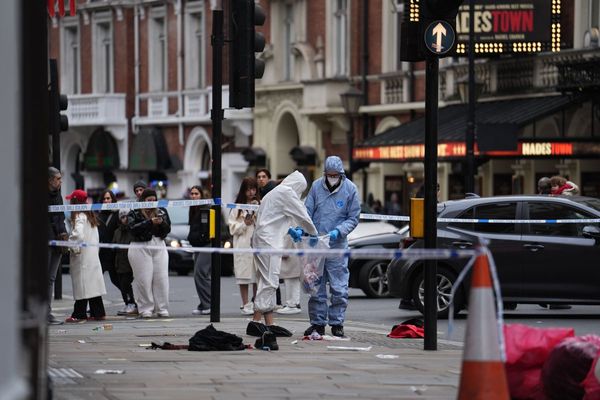
Seoul (AFP) - North Korea likely fired a "new type" of ballistic missile Thursday that may have used advanced solid fuel, Seoul's military said, representing a potential technical breakthrough for Pyongyang's banned weapons programmes.
All of Pyongyang's known intercontinental ballistic missiles (ICBMs) are liquid-fuelled, and solid-fuel ICBMs that can be launched from land or submarines have long been on top of leader Kim Jong Un's wish list.
"North Korea appears to have fired a new type of ballistic missile, possibly using solid fuel," Seoul's Joint Chiefs of Staff told AFP.
Such missiles are easier to store and transport, more stable and quicker to prepare for launch, and thus harder to detect and destroy pre-emptively.
North Korea showed off a record number of nuclear and intercontinental ballistic missiles at a military parade in Pyongyang in February, including what analysts said was possibly a new solid-fuelled ICBM.
Seoul's military said on Thursday it had detected one "medium range or longer" ballistic missile launched on a lofted trajectory -- up not out -- from the Pyongyang area at 7:23 am (1023 GMT), which flew 1,000 kilometres (620 miles).
Japan, which briefly issued a seek-shelter warning to residents of the northern Hokkaido region, said the missile had not fallen within its territory and posed no threat to residents.
Climate and environment ministers from the Group of Seven are due to meet this weekend in Sapporo, Hokkaido's regional capital, a month before the bloc holds its summit in Hiroshima.
The United States said it "strongly condemns" North Korea for the test of what it described as a long-range ballistic missile.
China blamed the "negative impact" of US military drills for driving up tensions on the Korean peninsula and called on all parties to "remain calm and restrained".
The launch is the latest in a string of banned weapons tests conducted by North Korea, which has already fired several of its most powerful ICBMs this year.
It has also tested what state media has claimed are nuclear-capable underwater drones -- known as Haeil, the Korean word for tsunami -- which it says are capable of unleashing a "radioactive tsunami".
Kim attended a meeting on Monday of the Central Military Commission to discuss ways to "cope with the escalating moves of the US imperialists and the south Korean puppet traitors to unleash a war of aggression", Pyongyang's Korean Central News Agency said.
He ordered that the North's deterrence capabilities be strengthened with "increasing speed" and in a "more practical and offensive" manner.
'Real war'
Relations between the two Koreas are at one of their lowest points in years, with Pyongyang declaring itself an "irreversible" nuclear power last year, effectively ending the possibility of denuclearisation talks.
Kim also ordered the military this year to intensify drills to prepare for a "real war".
Washington and Seoul have ramped up defence cooperation in response, staging joint military exercises with advanced stealth jets and high-profile US strategic assets.
North Korea views such exercises as rehearsals for invasion and described them on Tuesday as "frantic" drills "simulating an all-out war against" Pyongyang.
The latest test was likely a bid by the North "to put pressure on the South and the United States over their joint military exercises", Choi Gi-il, professor of military studies at Sangji University, told AFP.
South Korea also accused North Korea on Tuesday of being "irresponsible" after Pyongyang cut hotline contact with Seoul last week.
North Korea has not answered the twice-daily calls made through a military hotline and an inter-Korean liaison channel since Friday, according to Seoul's unification ministry.
The UN Secretary-General Antonio Guterres urged Pyongyang to "reopen communication channels, and to resume dialogue" towards peace and total denuclearization of the Korean peninsula, according to a statement issued by his spokesman condemning the latest missile launch.
The links were cut a day after Seoul accused Pyongyang of continued unauthorised use of a joint industrial complex in the North Korean city of Kaesong.
"Pyongyang's provocations continue past its protest of US-South Korea defence exercises because Kim Jong Un hasn't finished demonstrating his nuclear delivery capabilities yet," said Leif-Eric Easley, a professor at Ewha University in Seoul.
"However, with the North Koreans literally not answering the phone, the lack of hotlines and diplomacy increases the risk of unintended escalation."







